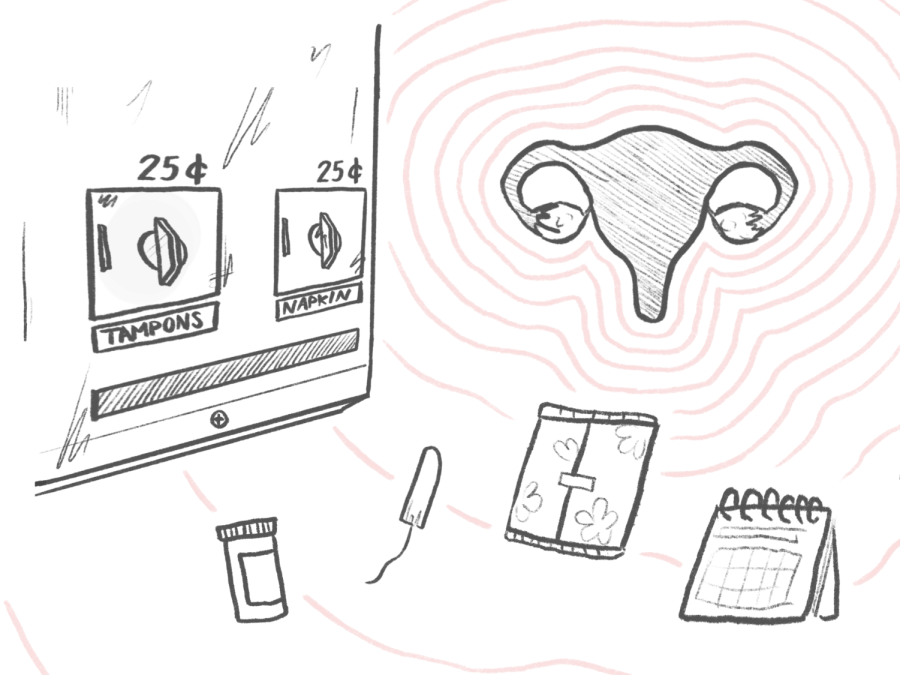Menstrual Health Inequities Force Students To Miss School
February 12, 2023
For many, menstrual health is a topic shrouded in stigma and shame. Although a natural part of life, 500 million people lack access to menstrual products and hygiene facilities worldwide. The overall cost of menstrual products and absence of education globally increases stigma around menstruation. Many CRLS students feel that menstrual health inequity is an underrepresented issue that impacts a large demographic.
In Cambridge, over 43% of 132 students surveyed by the Register Forum have struggled to access menstrual hygiene products at school. Students feel that schools inadequately prepare them for menstruation, and do not make basic hygiene products accessible to all. Pad and tampon dispensers at CRLS are “very outdated,” still charging 25 cents per product and “barely functioning to begin with.” Additionally, over 51% of students surveyed rate the accessibility of products in CRLS bathrooms 1-2 out of 5, describing dispensers as “rarely full” and “usually broken.” Students also reported the quality of products to be poor, with tampons having cheap cardboard applicators and pads with low coverage.
Solana Vengas ’24 tells the Register Forum about menstrual products at CRLS, saying, “I think products are quite accessible for anyone who is comfortable asking for them but not for anyone who isn’t.” This inequity has led to over 10% of surveyed students to miss school due to the cost and accessibility of products. The inability to access menstrual products due to the cost is known as “period poverty.”
Noemi Noblett ’26 describes to the Register Forum, “Without proper access to menstrual products, many people who menstruate can’t participate in day-to-day activities.” Emilia Ferreira ’24 agrees, adding, “Periods are such a stressor in general; stressing about if you can even afford products or medicine to reduce pain only adds to it.”
Although hygiene products are accessible for free at the Teen Health Center, health teacher Ms. Shannon Beatty believes they should be available everywhere, telling the Register Forum, “The fact that somebody would have to walk all the way over to the Teen Health Center to get something for basic health needs is ridiculous.”
Education is also a major factor in de-stigmatizing periods. At CRLS, menstrual health education only happens in 9th-grade wellness classes and relies on prior knowledge from middle school. By the time a student receives education about menstrual hygiene, they may have already started menstruating. Over 32% of surveyed students say they were not educated about menstruation before the age of puberty.
Language also plays a crucial role in making menstrual health literacy accessible for all. In an interview with the Register Forum, Finn Graham ’26 shares his experience regarding gender-inclusive products, saying, “There are subtler things, such as the female symbol in places where you throw away period products. These things may seem small, but constantly being surrounded by them can be very detrimental. It constantly reminds me of the way that my gender identity isn’t supported.” 9th grade health teacher Ms. Lauren Schneider added to the Register Forum, “While it is true that the majority of menstruators are girls and women, not all girls and women menstruate and not all people who menstruate are girls and women.”
This article also appears in our January 2023 print edition.











